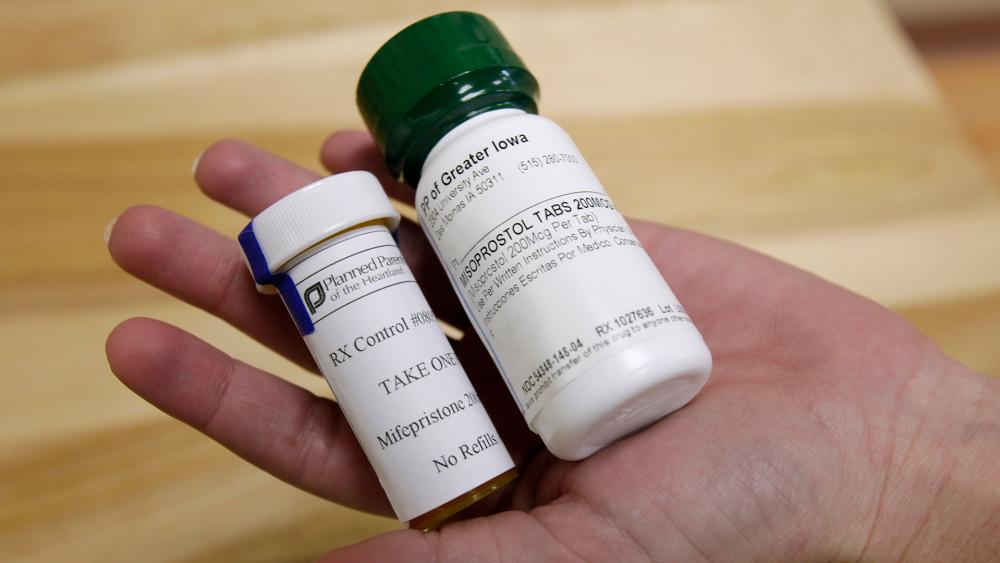At-home abortions are becoming a big topic for debate among state lawmakers across the U.S. Roughly 40% of all abortions in the country are now done through medication — rather than surgery — and the COVID-19 pandemic has only made them more central to the pro-choice crowd.
Abortion rights advocates say the pandemic has demonstrated the value of medical care provided virtually, including the privacy and convenience of abortions taking place in a woman's home, instead of a clinic.
However, pro-life advocates cite concerns about the safety of at-home abortions as the method becomes increasingly prevalent. So they're pushing legislation in several Republican-led states to restrict it and, in some cases, ban providers from prescribing powerful abortion medications via telemedicine.
***As the number of voices facing big-tech censorship continues to grow, please sign up for CBN Newsletters and download the CBN News app to stay up-to-date with the latest news from a distinctly Christian perspective.***
Ohio enacted a ban this year, proposing felony charges for doctors who violate it. The law was set to take effect next week, but a judge has temporarily blocked it in response to a Planned Parenthood lawsuit.
In Montana, Republican Gov. Greg Gianforte is expected to sign a ban on telemedicine abortions. The measure's sponsor, Rep. Sharon Greef, has called medication abortions "the Wild West of the abortion industry" and says the drugs should be taken under close supervision of medical professionals, "not as part of a do-it-yourself abortion far from a clinic or hospital."
Greef said the measure would also ensure providers can watch for signs of domestic abuse or sex trafficking as they care for patients in person.
Opponents of the bans say telemedicine abortions are safe, and outlawing them would have a disproportionate effect on rural residents who face long drives to the nearest abortion clinic.
Elisabeth Smith, chief counsel for state policy and advocacy with the Center for Reproductive Rights, claims the pro-life laws are being designed with nefarious intent. "They're only meant to make it more difficult to access this incredibly safe medication and sow doubt into the relationship between patients and providers," Smith said.
Other legislation has sought to outlaw delivery of abortion pills by mail, shorten the 10-week window in which the method is allowed, and require doctors to tell women undergoing drug-induced abortions that the process can be reversed midway through – a practice which CBN News has reported on over the years.
It's part of a broader wave of pro-life measures numerous states are considering this year, including some that would ban nearly all abortions. The bills' supporters hope the U.S. Supreme Court, now with an alleged 6-3 conservative majority, might be open to overturning or weakening the 1973 Roe v. Wade decision that invented a nationwide right to abortion. Others point out Chief Justice John Roberts can't be counted as a conservative, and several of the newer justices haven't given any indication that they're ready to tackle major precedents like Roe.
Meanwhile, legislation targeting medication abortion was inspired in part by developments during the pandemic, when the Food and Drug Administration — under federal court order — eased restrictions on abortion pills so they could be sent by mail. A requirement for women to pick them up in person is back, but abortion opponents worry the Biden administration will end those restrictions permanently. Abortion-rights groups are urging that step.
Medication abortions have been available in the United States since 2000 when the FDA approved the use of mifepristone. Taken with misoprostol, it constitutes the so-called abortion pill.
The method's popularity has grown steadily. The Guttmacher Institute, a research organization that supports abortion rights, estimates that it accounts for about 40% of all abortions in the U.S.
Planned Parenthood of Southwest Ohio says medication abortions account for a quarter of the abortions it provides. But Mike Gonidakis, president of Ohio Right to Life, says just because the practice is becoming more prevalent, that doesn't make it right. "No woman deserves to be subjected to the gruesome process of a chemical abortion potentially hours away from the physician who prescribed her the drugs," he said.
Did you know?
God is everywhere—even in the news. That’s why we view every news story through the lens of faith. We are committed to delivering quality independent Christian journalism you can trust. But it takes a lot of hard work, time, and money to do what we do. Help us continue to be a voice for truth in the media by supporting CBN News for as little as $1.












 Support CBN News
Support CBN News









